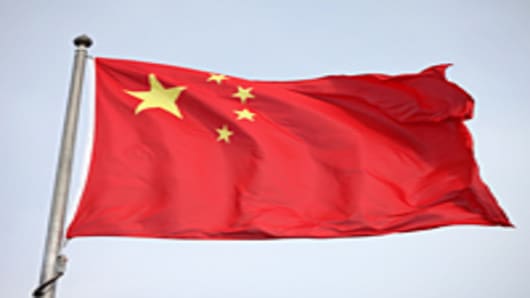Perhaps the biggest irony in global economics right now is the double-standard applied to economic planning.
When the Federal Reserve in the United States tries to ease our economic slump through quantitative easing, we hear cavils about debasing the money supply and distorting the economy. But when the Chinese government, which has inflated its money supply far faster than the US, endorses price controls on consumer goods to tame inflation it gets praised for its action.
Earlier this week, China's State Council announced that it may impose price caps on "important daily necessities." This is a quite typical reaction of a government that has adopted an inflationary monetary policy but wants to avoid the unavoidable consequence of higher prices.
Importantly, it has never, ever worked. What has happened every single time this has been tried is that the government puts the country on a treadmill to economic hell. Inflation leads to higher prices, which leads to price controls. Price controls start at the consumer level but then must be forced ever further backward on the production line. You control the price of food, and soon you have to control the price of fertilizer and fuel used to produce the food.
It doesn't end there. Price controls breed shortages, which leads to government rationing. They also encourage hoarding, which leads to a government crack-down on hoarding.
This is already underway in China. At the same time the State Council indicated it might implement price controls, it announced a new campaign against speculation in vegetables, grain, cooking oil and sugar. Which is to say, it announced that it would begin cracking down on anyone stocking up products in advance of the shortages that will be caused by artificially low prices.
You would think that the long, grim history of price controls would discourage anyone from praising price controls. Instead, China is getting praised for its efforts to "tame inflation."
“This is about the strongest signal the government could give of its determination to slow price rises,” Mark Williams, a London-based economist at Capital Economics Ltd. and a former China adviser for the U.K. Treasury, told Bloomberg. “Whether or not controls end up being widely implemented, the government will hope that the mere fact of the announcement will help to rein in inflation expectations.”
Utter nonsense. Actually, the opposite is likely to happen. Announcing potential price-controls in advance of actually implementing them is probably the worst idea possible. It will encourage hoarding in advance of the controls, which will accelerate rising prices. Because this dynamic is so easy to anticipate, price-controls will actually increase inflation expectations.
In other words, China has adopted a price control policy at war with its monetary policy and that is bound to backfire.
Why aren't we hearing the panic bells go off from our self-styled China experts? All too often, they seem convinced that China is different. The normal laws of economics do not apply, as if the laws of supply and demand get changed when translated into Mandarin. But, as an old Chinese proverb goes, "Crows are black everywhere." And price controls backfire, everywhere and always.
____________________________________________________
Questions? Comments? Email us atNetNet@cnbc.com
Follow John on Twitter @ twitter.com/Carney
Follow NetNet on Twitter @ twitter.com/CNBCnetnet
Facebook us @ www.facebook.com/NetNetCNBC



